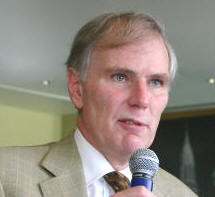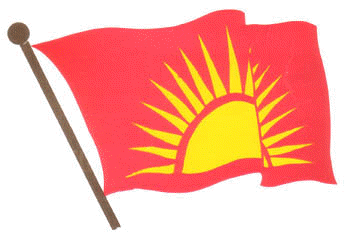|
Impunity Making Mockery of Addressing
Extrajudicial Executions
Special Rapporteur to UN's Third Committee,
29 October 2007
 Mr.
Alston said that uncooperative States were being rewarded
and a system of impunity was being established in relation
to the most serious concerns relating to extrajudicial
killings. This made "a mockery" of the special procedures to
address such killings. Addressing specific country
situations, he named Iran as the country that executed more
juveniles than any other, and also singled out the
situations in the Philippines and Sri Lanka for special
attention... As for Sri Lanka, he reminded the
Committee that he had warned of an impending crisis last
year. That crisis continued to worsen, and he believed that
the establishment of an international human rights
monitoring presence by the United Nations would
significantly reduce the number of human rights abuses in
that country. It was time for the General Assembly and
the Human Rights Council to act, he urged. Mr.
Alston said that uncooperative States were being rewarded
and a system of impunity was being established in relation
to the most serious concerns relating to extrajudicial
killings. This made "a mockery" of the special procedures to
address such killings. Addressing specific country
situations, he named Iran as the country that executed more
juveniles than any other, and also singled out the
situations in the Philippines and Sri Lanka for special
attention... As for Sri Lanka, he reminded the
Committee that he had warned of an impending crisis last
year. That crisis continued to worsen, and he believed that
the establishment of an international human rights
monitoring presence by the United Nations would
significantly reduce the number of human rights abuses in
that country. It was time for the General Assembly and
the Human Rights Council to act, he urged.
GA/SHC/3895
Sixty-second General Assembly
Third Committee
26th & 27th Meetings (AM & PM)
The abdication of responsibility by both the Human Rights
Council and the General Assembly in enforcing the mandate of the
Special Rapporteur on extrajudicial, summary or arbitrary
executions had rendered the mandate impotent, said Philip
Alston, the current mandate holder, to the Third Committee
(Social, Humanitarian and Cultural) today as it continued its
review of human rights issues.
In a packed programme, the Committee heard from six experts,
including Special Rapporteurs and Independent Experts, on topics
ranging from executions to raids on migrants to the success of
the latest donor roundtable in Burundi.
In a forthright presentation that reflected on the 25-year
history of the mandate he now held, which was also the oldest of
all the Special Rapporteurs, Mr. Alston said that uncooperative
States were being rewarded and a system of impunity was being
established in relation to the most serious concerns relating to
extrajudicial killings. This made "a mockery" of the special
procedures to address such killings. Addressing specific country
situations, he named Iran as the country that executed more
juveniles than any other, and also singled out the situations in
the Philippines and Sri Lanka for special attention.
Jorge A. Bustamante, Special Rapporteur on the human rights of
migrants told the Committee that, ironically, it was restrictive
migration policies that were a fundamental cause of immigrants
falling into patterns were they were trafficked and smuggled.
He said that children -- "little girls and little boys" -- used
for the sex market in many countries was one of the worst cases
of violation of human rights. Such a market was not an
abstraction; it had a supply and a demand, but that demand had
not been recognized. Recognition of that demand would require
action by the United Nations. It would otherwise be hard to
advance the overall defence of the human rights of migrants, he
warned.
The Special Rapporteur on the situation of human rights in the
Democratic People's Republic of Korea, Vitit Muntarbhorn, told
the Committee it was regrettable that, to date, the authorities
in that country had declined to cooperate with him. But, on a
constructive note, the Democratic People's Republic of Korea was
party to human rights treaties; the six-party talks aimed at
denuclearizing the Korean peninsula had made welcome progress;
and the October 2007 summit between the Democratic People's
Republic of Korea and the Republic of Korea was a welcome
development.
Yet the human rights situation remained grave, noted Mr.
Muntarbhorn. The country was under a non-democratic regime that
adhered to a "military first" policy that depleted resources and
created budgetary distortions in favour of the ruling elite and
militarization. On the issue of asylum, the Special Rapporteur
said that many who left the Democratic People's Republic of
Korea due to hunger or economic reasons, could be seen as
"refugees sur place", as there was a threat of persecution or
prosecution if they were sent back, on the basis of their having
left without an exit visa. Those who sought refuge should not be
treated as illegal immigrants; nor should they be detained. And
the international community should help countries of first
asylum to find durable solutions to the refugee problem.
Asma Jahangir, Special Rapporteur on freedom of religion or
belief, pointed out that the right not to profess any religion
or belief was also protected, and such persons should not be
discriminated against.
Akich Okola, the Independent Expert on the situation of human
rights in Burundi pointed out that the country had come a long
way since only two years ago. Back then, his report had been
concerned with child soldiers and demobilization and like
matters. Today, the country was considering a steering committee
to set up a truth and reconciliation commission.
Titinga Fr�d�ric Pac�r�, Independent Expert on the situation of
human rights in the Democratic Republic of the Congo,
highlighted numerous situations of concern: arbitrary
executions, rape and inhuman and degrading treatment -- all
taking place in a climate of impunity. The Armed Forces and
police were notable among violators, he said.
The Committee also heard the introduction of a draft resolution
by Mongolia on cooperatives in social development.
The Committee will meet again at 10 a.m. on Monday, 29 October,
to continue its general discussion on human rights.
Background
The Third Committee (Social, Humanitarian and Cultural) today
continued its general discussion of human rights. For more
background, please see Press Releases GA/SHC/3894 and
GA/SHC/3893.
Extrajudicial, Summary or Arbitrary Executions
PHILIP ALSTON, Special Rapporteur on extrajudicial, summary or
arbitrary executions said his report to the General Assembly
this year contained a historical review of the evolution of his
mandate, and he had selected several specific themes to
illustrate the ways in which that mandate had evolved to deal
with changing threats and challenges. These threats and
challenges included counter-terrorism, the protection of
refugees and internally displaced persons, and the role of
non-State actors. The Special Rapporteur on extrajudicial,
summary or arbitrary executions was the first human rights
rapporteur to be appointed, 25 years ago on 11 March 1982.
He said the mandates of Special Rapporteurs like him had evolved
in response to factors such as additional demands by States, new
forms of violence, increasing public demands for effective
responses, and the development of new techniques within the
overall human rights regime. That ability to adapt and evolve
was essential. In recent discussions on the reform of the
system, it had often been alleged that many of the special
procedures involved Western experts focusing on the problems of
developing countries. In that light, he pointed out that he was
the first Special Rapporteur on this mandate to come from a
Western country, with his predecessors coming from Kenya,
Senegal and Pakistan.
In his reports on country visits, he had been careful to respect
the confines of his mandate while acknowledging the broader
context. But despite efforts to improve that mandate's
functions, serious problems still persisted. In his efforts to
respond to alleged killings, he had found that the majority of
Governments were failing the basic test of accountability. 90
per cent of countries he had identified as warranting a country
visit had failed to cooperate. And neither the Assembly nor the
Human Rights Council had done anything in response. That
"abdication of responsibility" had resulted in uncooperative
States being rewarded, and a system of impunity being
established in relation to the most serious concerns relating to
extrajudicial killings. The impotence of the Special Rapporteur
in such situations made "a mockery" of the special procedures to
address extrajudicial killings.
He then addressed specific country situations, starting with
Iran, which executed more juveniles than any other country.
Another major problem, he said, was that country's application
of the death penalty for a wide range of crimes which "by no
reasonable measure" met international law's requirements; that
executions should be restricted to and applied to those guilty
of the most serious crimes. Adultery, unlawful sexual relations,
homosexuality, rape, insulting religions, acts against national
security and abduction were among the crimes for which people
had been executed. Laws that allowed adulterers to be stoned to
death were "barbaric" by any standards, he said. It was long
past the time for the Assembly to stand up and respond to those
chronic violations of human rights.
Although his report on the Philippines had not yet been made
public, he informed the Committee that he continued to receive
deeply disturbing information, and he was concerned about a
missing activist, Jonas Burgos, who might have disappeared or
been killed.
As for Sri Lanka, he reminded the Committee that he had warned
of an impending crisis last year. That crisis continued to
worsen, and he believed that the establishment of an
international human rights monitoring presence by the United
Nations would significantly reduce the number of human rights
abuses in that country.
It was time for the General Assembly and the Human Rights
Council to act, he urged...
The representative of Sri Lanka said that since last year, there
had been several developments, including a recent visit by the
High Commissioner for Human Rights, Louise Arbour, who herself
had described that visit to the Committee as useful and
constructive. Sri Lanka engaged with Ms. Arbour's Office and
other international parties vis-�-vis human rights, and it would
make a more detailed statement at a later Committee meeting...
|

